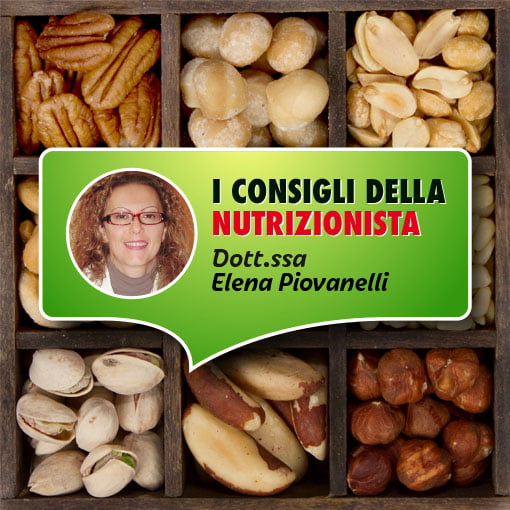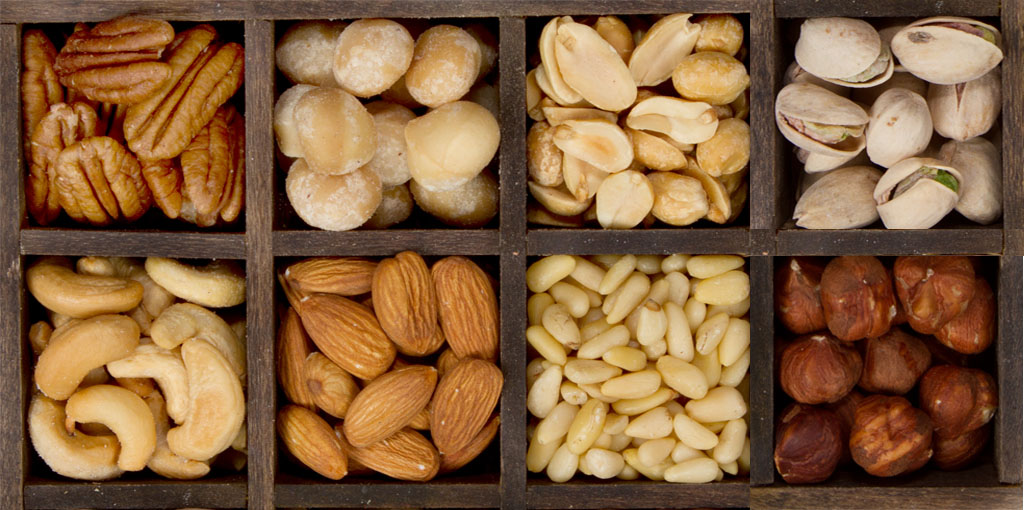“Oleaginous” nuts


Nuts have always been one of the most important natural resources for human nutrition, due to the high proportion of elements that are essential for good health contained within them. This is illustrated by the fact that they are one of the key components of the Mediterranean diet, which is recognised by numerous scientific studies to provide protection from many health conditions (obesity, diabetes, cardiovascular diseases, cancer).
They have a high lipid content (in other words they are high in fat), and for this reason they are defined as oleaginous, and they are enclosed in a shell: cashews, peanuts, almonds, hazelnuts, walnuts, brazil nuts, pecan nuts, pine nuts and pistachios.
To be precise, peanuts actually belong to the legume family, but they are classified in this food group due to their nutritional composition.
Nuts are an important source of lipids, but they have a unique composition: they do not contain cholesterol (not present in the plant kingdom) and are low in saturated fats (those fats which are typically found in foods of animal origin). They are also a source of protein, fibre, vitamins (E and B-group in particular), mineral salts (iron, calcium, zinc, magnesium, selenium, copper) and phytochemicals (these are compounds that are naturally produced by plants and which provide multiple and different health benefits: some of them, for example, contribute to maintaining low levels of cholesterol).
We can also find commercially available products that derive from their processing which, in many cases, have a different nutritional composition to the initial product: there are cream spreads (e.g. hazelnut or pistachio), plant-based drinks (e.g. almond milk) and oils (e.g. peanut).
Nuts can be eaten for breakfast, alongside other foods, or as a snack, considering they leave you feeling sated, and as they are enjoyed by so many people, they can also help to satisfy the palate.
They can even be eaten after a meal, but not as a substitute for fresh fruit, with which they have nothing in common.
They can be an ingredient in making desserts (cakes, biscuits) or savoury dishes (salads, pasta dishes), and sports people can use them as a natural supplement for augmenting their consumption of plant-based fat and protein.
However, since they are highly calorific, it’s important to be careful and eat them in moderation.
It’s advisable to avoid those that are sold as “shelled and salted”, and to vary the type consumed, in order to give the body all the various elements they provide: almonds are particularly rich in calcium, brazil nuts in selenium and pistachios in iron.
Dr. Elena Piovanelli, dietician